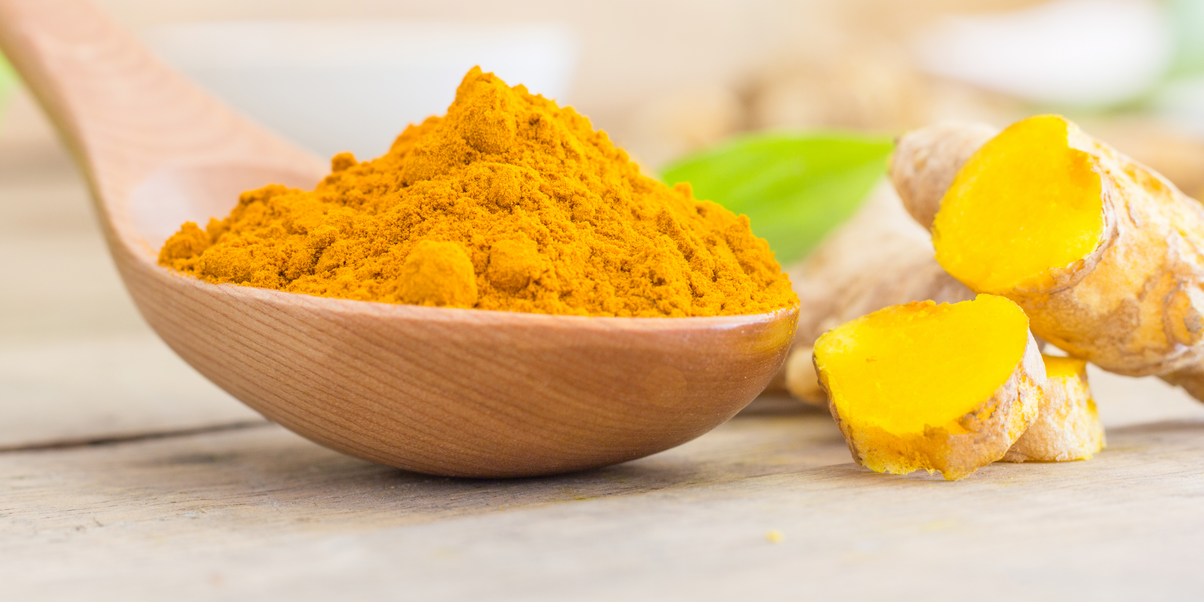Posted by Ralph Panttaja on Nov 3rd 2025
The Role of Curcumin in Combating Inflammation and Chronic Diseases
The Role of Curcumin in Combating Inflammation and Chronic Diseases
Curcumin, the active compound found in the spice turmeric, has garnered significant attention for its potent anti-inflammatory properties and potential role in managing various chronic diseases. In this article, we will explore the science behind curcumin, its benefits, and how it can be incorporated into your daily health regimen.
Understanding Curcumin
What is Curcumin?
Curcumin is a bright yellow chemical produced by plants of the Curcuma longa species, commonly known as turmeric. It is used as a spice, food coloring, and in traditional medicine for its purported health benefits.
Historical Uses of Curcumin in Traditional Medicine
For centuries, curcumin has been a staple in Ayurvedic and Chinese medicine. It has been used to treat a variety of ailments, including digestive disorders, wounds, and infections.
Anti-inflammatory Properties of Curcumin
How Curcumin Works as an Anti-inflammatory Agent
Curcumin inhibits several molecules known to play a role in inflammation. It suppresses the activity of nuclear factor-kappa B (NF-κB), a protein complex that controls the transcription of DNA, cytokine production, and cell survival. This action helps reduce inflammation at the molecular level.
Comparison with Conventional Anti-inflammatory Medications
Unlike nonsteroidal anti-inflammatory drugs (NSAIDs), curcumin does not have adverse side effects like gastrointestinal bleeding or ulcers. This makes it a safer alternative for long-term use in managing chronic inflammation.
Curcumin and Chronic Diseases
Overview of Chronic Diseases Impacted by Inflammation
Chronic inflammation is a common underlying factor in many chronic diseases, including arthritis, heart disease, and diabetes. By reducing inflammation, curcumin may help manage these conditions.
Specific Chronic Conditions Curcumin Helps Manage
Curcumin and Arthritis
Curcumin's anti-inflammatory properties can help reduce joint pain and swelling in arthritis patients. Several studies have shown that curcumin supplements can improve symptoms of rheumatoid arthritis and osteoarthritis.
Curcumin and Heart Disease
Inflammation plays a significant role in the development of heart disease. Curcumin helps improve the function of the endothelium, the lining of the blood vessels, and reduces inflammation and oxidation, which are major contributors to heart disease.
Curcumin and Diabetes
Curcumin may help prevent diabetes and manage its complications by reducing inflammation and improving insulin sensitivity. It also helps regulate blood sugar levels and enhances the function of pancreatic cells.
Curcumin in Cancer Prevention and Treatment
Curcumin has shown promise in preventing and treating various types of cancer. It can inhibit the growth of cancer cells and tumors by affecting multiple cellular pathways involved in cell proliferation and apoptosis (programmed cell death).
Bioavailability of Curcumin
Challenges with Curcumin Absorption
Curcumin is poorly absorbed into the bloodstream when taken alone. Its rapid metabolism and elimination from the body also reduce its effectiveness.
Strategies to Enhance Bioavailability
To improve absorption, curcumin can be taken with black pepper, which contains piperine, a natural substance that enhances curcumin absorption by 2000%. Other methods include using liposomal curcumin, curcumin nanoparticles, or curcumin phytosome formulations.
Dosage and Safety
Recommended Dosages for Various Conditions
The effective dosage of curcumin varies depending on the condition being treated. For general health, doses of 500–2000 mg of turmeric extract per day, providing 60–95% curcuminoids, are commonly used.
Potential Side Effects and Safety Considerations
Curcumin is generally considered safe. However, high doses may cause gastrointestinal issues such as nausea and diarrhea. It's important to consult with a healthcare provider before starting any new supplement regimen, especially for individuals with underlying health conditions.
Incorporating Curcumin into Your Diet
Dietary Sources of Curcumin
Turmeric is the primary dietary source of curcumin. It can be added to various dishes, teas, and smoothies to boost curcumin intake.
Supplements and Formulations Available
Curcumin supplements are available in various forms, including capsules, tablets, and powders. High-quality supplements often contain bioavailability enhancers like piperine.
Choosing Quality Curcumin Supplements
Factors to Consider When Selecting a Curcumin Supplement
Look for supplements that contain standardized extracts of curcumin with high bioavailability. Products should be free from contaminants and tested for purity and potency.
Benefits of High-quality, Bioavailable Supplements
High-quality curcumin supplements, like those from Beyond Health, ensure maximum absorption and effectiveness, providing better health outcomes and value for money.
Customer Testimonials and Success Stories
Many individuals have experienced significant health improvements with curcumin supplementation. Testimonials highlight reduced pain, improved mobility, and better overall health.
Expert Insights
Health professionals recommend curcumin for its potent anti-inflammatory and antioxidant properties. They emphasize its role in managing chronic conditions and promoting overall health.
Frequently Asked Questions
How quickly can I expect to see results from taking curcumin?
Results can vary, but many individuals start noticing improvements in inflammation and pain within a few weeks of consistent use.
Can I take curcumin with my other medications?
Curcumin may interact with certain medications, including blood thinners and diabetes medications. It's essential to consult with a healthcare provider before combining curcumin with other treatments.
Are there any dietary restrictions while taking curcumin?
There are no specific dietary restrictions while taking curcumin. However, combining it with a healthy diet can enhance its benefits.
Is curcumin safe for long-term use?
Curcumin is generally safe for long-term use when taken at recommended dosages. Regular monitoring and consultation with a healthcare provider are advised.
What are the signs of curcumin overdose?
Signs of curcumin overdose include nausea, diarrhea, and dizziness. Reducing the dosage or discontinuing use can alleviate these symptoms.
Conclusion
Curcumin is a powerful natural compound with extensive health benefits, particularly in reducing inflammation and managing chronic diseases. Incorporating curcumin into your daily routine, whether through diet or supplements, can significantly enhance your overall health and well-being. As always, consult with healthcare professionals to determine the best approach for your individual needs.
 Fuel your life with the purest vitamins
Fuel your life with the purest vitamins
